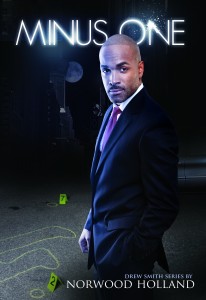Taboo the Issue of Race
March 24, 2010
Growing up in the South and being amongst the first generation to integrate public schools I’ve always noticed how discussions of race with whites can cause discomfort–a subject many would rather not engage. It was one such discussion that prompted this blog. I pitched a story to Sheri Dalphonse Editor of the Washingtonian magazine on an local African American filmmaker and his efforts to turn his award winning short into a feature film. I got the idea after reading a similar story in the prior editon about similar efforts of two white male filmmakers. The editor rejected the pitch. I questioned why white filmmakers merited coverage but the African-American did not. Offended she declared race had nothing to do with it. I left it that. Months later I pitched another story about and a remarkable artist and ex-con that almost made it into print. I sensed her lack enthusiasm believing the subject would not interest Washingtonian’s upper crust white audience.
I knew the risk of raising race and offending the editor would not help getting me into print, but I couldn’t let it go. A year later the Washingtonian ran an article on the top 100 dentist in the Washington area–all white. The editor claimed the survey method was unbiased relying on the local dentist and members of the American Dental Association. I raised the fact that Washington DC was 60 percent black and most black folk patronize black dentists. I questioned why no black dentists were represented at the top. Again, I had offended but the offense gave serious pause for thought, qualifications and patient satisfaction were not determinative.
I let her know that her survey was biased because she neglected to contact any dentist in the National Dental Association. Huh? Unaware the African American dental profession like the medical and legal professions as a result of a history of discrimination had formed their own professional associations, a time honored tradition. The editor had in fact unintentionally discriminated. I had enlightened her and she promised to include the National Dental Association in the next annual survey. I also noticed the magazine has since hired an African American staff writer a former local TV news reporter.
By confronting the taboo I raised the Editors conscience and paved a way for the opportunity of another. The Washingtonian may never publish any my work because of my ethnic outlook, but they’ll think twice about excluding ethnic content in the future. The Washington community is made up of Asians, Latinos, Blacks and others. It’s important to engage discussion on race and ethnicity no matter how uncomfortable—it just good business. A history of opportunity denied by countless editors caused a certain self-reliance. I have herein made my own.
Get into the Loop
March 11, 2010
If you want to know more on the happenings in contemporary Black life check out theloop21.com. Dr. Darnell Williams an economist and former professor having distinguished himself in business and government is the founder and publisher. This new website from an African American perspective chronicles the breadth of the Black experience through history and contemporary times. Mainstream media would have us believe African-Amerian cultural focal points are sports and entertainment but it’s much more, and rich with a wide range and depth of experiences. Until the election of Barak Obama the world gave little attention to African American culture which remains distinct from the broader American society.
The site features articles in different categories, including jobs, politics, education and the economy. Keli Goff a journalist and author of Party Crashing: How the Hip-Hop Generation Declared Political Independence is a frequent contributor and describes the theloop21.com as a news site first and foremost highlighting a perspective relevant to African Americans. Referring to the website’s recent completed news survey on race and media, she says is a perfect example of how this site is more than just a news site, being mindful of capturing the perspectives of African Americans.
The editorial board is made up of writers and journalist from Essence Magazine, the Los Angeles Daily News, and many other periodicals. It also has its own video installments with a corresponding Youtube channel. Editorialindependence.com is always glad to see a new source of diversity in the media. Check it out and get into the loop.
What Were They Thinking?
March 4, 2010
This week three white male Los Angeles elementary school teachers were placed on administrative leave after orchestrating a stunt giving the students portraits of O.J. Simpson, Dennis Rodman and RuPaul to carry in a Black History Month parade. The celebrities are not historical figures so what was the point? What was the intended message? O.J. Simpson, once Heisman trophy winner, NFL player, sports broadcaster, actor and accused killer on the road to perdition lost his fame. Dennis Rodman is another retired athlete and NBA star now known for his celebrity antics. And there’s Rupaul an actor, drag queen, model, and singer-song-writer. The celebrities are neither a credit nor a disgrace to their race. They are just men who happened to be Black. What where these teachers thinking, that’s what I want to know. Was it mean spirited mischief? We may never know.
Teachers are supposed to create a learning environment conducive to optimum achievement academically, socially, and emotionally. They are to be models of decorum and respect guiding students as well as honoring them. This is in no way to honor Black history but only reinforces racist attitudes and a lack of appreciation of other ethnic cultures.
The Strategy
March 3, 2010
Ethnic minorities will form an increasingly important sector of the population over the next few decades, and the media has a special role to play in educating the public by highlighting the growing diversity in their societies and audiences. A multi-cultural media policy both in reporting and employment can have a profound effect on the perceptions and attitudes of the public. Bent Sørensen, UNESCO Background Paper.
Despite a growing awareness of the media that they are supplying information and communication in multicultural societies, ignorance and lack of appreciation of different cultures, traditions and beliefs within the media still read to stereotypes that reinforces racist attitudes. The International Federation of Journalists during the United Nations World Conference against Racism in Durbin in September 2001called on the international community to support work being done by journalist and media staff at regional, national and international level who join together to reassert the core principles of truth telling, independence and ethical journalism. The IFJ has suggested establish a vigorous new global information strategy, building on existing anti-racism initiatives, and supporting the professional objectives of media professionals.
The strategic framework sets out 5 initiatives:
1. Editorial Independence and Effective Self-Regulation.
2. Diversity within the Media
3. Training for Tolerance
4. Building Industry, Co-operation and Solidarity
5. Raising Awareness Among Journalists (See pages 9 and 10) UNESCO Background Paper
Editorialindependence.com seeks to promote diversity and deterring discrimination in the media and entertainment industry working to raise awareness among journalist and to ensure Good Practices.
The Solution
March 2, 2010
Editorial Independence is the shield against the conflict of interest of being beholden. It is resisting the influence of sponsors and those with a political, personal or any hidden agenda the hallmark of any public service media. A 2002 UNESCO Background Paper, Racism, Racial Discrimination and Related Intolerance Relating To the Media, Including New Information Technologie, the author Bent SØrensen Argues Ethnic Minorities will form an increasingly important sector of the population over the next few decades, and the media has a special role to play in educating the public by highlighting the growing diversity in their societies and audiences. A multi-cultural media policy both in reporting and employment can have a profound effect on the perceptions and attitudes of public.
The solution is to expand opportunities to all minorities incorporating their cultural and ethnic perspective.




